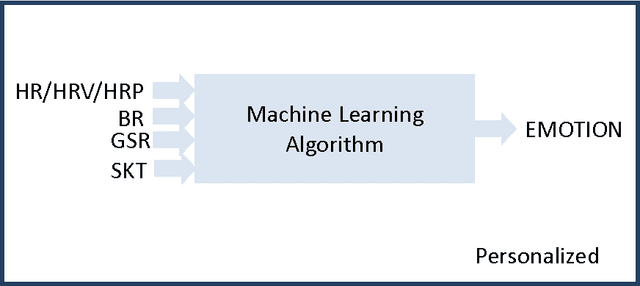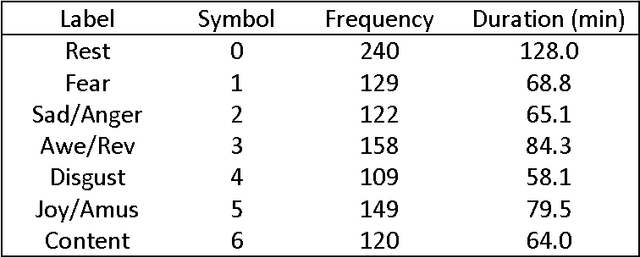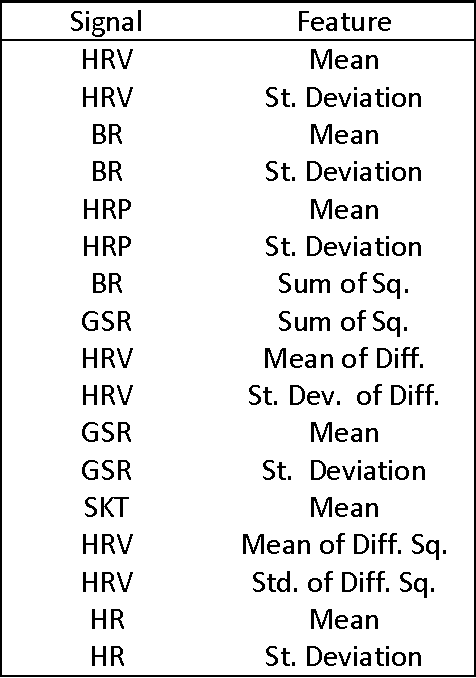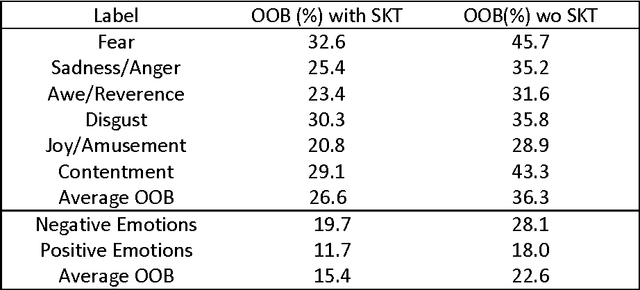A Controlled Set-Up Experiment to Establish Personalized Baselines for Real-Life Emotion Recognition
Paper and Code
Mar 19, 2017



We design, conduct and present the results of a highly personalized baseline emotion recognition experiment, which aims to set reliable ground-truth estimates for the subject's emotional state for real-life prediction under similar conditions using a small number of physiological sensors. We also propose an adaptive stimuli-selection mechanism that would use the user's feedback as guide for future stimuli selection in the controlled-setup experiment and generate optimal ground-truth personalized sessions systematically. Initial results are very promising (85% accuracy) and variable importance analysis shows that only a few features, which are easy-to-implement in portable devices, would suffice to predict the subject's emotional state.
* 15 pages, 2 figures, 9 tables, Statistics-Machine Learning
 Add to Chrome
Add to Chrome Add to Firefox
Add to Firefox Add to Edge
Add to Edge